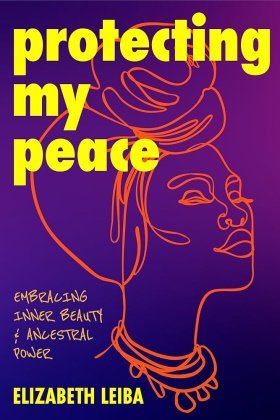journaling questions 
1.Reflecting on your African ancestry, how do your forebears’ stories, struggles, and triumphs contribute to your understanding of self and your place in the world?
2.How does gaining knowledge of Black women’s pivotal roles throughout history influence your sense of pride, worth, and capability in today’s society?
3.How do the diverse cultures, traditions, and values from African societies shape your worldview and personal identity? Are there specific cultural practices or traditions that resonate deeply with you?
4.Think of a mentor or role model from the Black community who has significantly impacted your life. How have their guidance and wisdom shaped your personal and professional journey?
5.How can you actively contribute to ensuring the younger generation in the Black community receives the mentorship, encouragement, and nurturing they need to thrive? What roles can you play in fostering such environments?
6.How does embracing your African ancestry and the rich history of Black women empower you to face challenges and navigate spaces where your identity might be marginalized or misunderstood?
7.How does understanding and celebrating your Black heritage contribute to your mental health, emotional well-being, and overall sense of purpose?
8.Why do you think it’s essential for the younger generation in the Black community to be well-versed in their history and culture? How can you contribute to this education and cultural transmission?
9.How can connecting deeply with your African roots and the shared history of Black women create a stronger sense of unity and solidarity within the community?
10.As you reflect on your journey and the importance of African ancestry in forming a positive identity, what legacy do you wish to leave for the younger generation? How do you envision them carrying the torch forward, understanding their roots, and shaping the future?
affirmations 
1.I am deeply rooted in the rich tapestry of African history; its stories of strength and resilience shape my identity and drive my purpose.
2.My African ancestry empowers me, reminding me daily of the strength, wisdom, and resilience that flows through my veins.
3.I am a continuation of a powerful legacy of Black women leaders, thinkers, and creators; I honor their struggles by thriving and uplifting others.
4.Through the mentorship of the trailblazing Black women before me, I find guidance, wisdom, and inspiration to navigate my path.
5.I am committed to nurturing, guiding, and mentoring the younger generation, ensuring they recognize the greatness within them and the potential they possess.
6.By immersing myself in Black history and culture, I fortify my spirit, boost my confidence, and find a wellspring of wisdom to draw from.
7.In embracing my true self and celebrating my African roots, I find an unmatched strength, confidence, and a deep sense of belonging.
8.Every day I affirm that my identity, grounded in my African ancestry, is a source of pride, strength, and unwavering resilience.
9.I am a beacon of hope and strength for my community, reminding them of our shared history, our potential, and the bright future we can create together.
10.Understanding and celebrating my Black heritage nourishes my soul, fortifies my mental well-being, and fills me with a purposeful joy.

135.Henry, Carma. 2016. “Dillard High School continues to make history!” The Westside Gazette, June 23, 2016. thewestsidegazette.com/dillard-high-school-continues-to-make-history/.
136.“Search for Public Schools—DILLARD 6–12 (120018000169).” 2022. NCES. nces.ed.gov/ccd/schoolsearch/school_detail.asp?Search=1&DistrictID=1200180&SchoolPageNum=8&ID=120018000169.
137.Keister, Linda W. n.d. “Amina.” The Black Names Project. Accessed July 3, 2023. www.blacknamesproject.com/node/163.
138.Sun Sentinel. 1992. “WHITE UNIVERSITIES FAILING TO SATISFY BLACK STUDENTS.” November 29, 1992. www.sun-sentinel.com/1992/11/29/white-universities-failing-to-satisfy-black-students/.
139.“Ronald Foreman Obituary (2014)—Gainesville, FL—Gainesville Sun.” 2014. Legacy.com. www.legacy.com/us/obituaries/gainesville/name/ronald-foreman-obituary?id=16636358.

chapter 9
the African
sacred feminine
and historical
stereotyping
“I think any black woman is a queen. It’s just, do you know it? Do you see it in yourself?”
—Ava DuVernay

In the heart of Africa, where the dawn of civilization and culture is as vast as the sun-scorched savannahs, lies the ethos of the African Sacred Feminine. A lineage of strength, resilience, and infinite wisdom, this powerful archetype stands in stark contrast to the often one-dimensional narrative projected upon Black women today. In this realm of ancestral memories, the Black woman was revered, not just as a nurturer but as a force of creation, leadership, and transformation.
The African Sacred Feminine is not just an archaic ideal. For the modern Black woman, it represents a deep reservoir of empowerment and identity, a vivid counter-narrative to prevalent stereotypes. Today, she is often caught in the crossfire of societal perceptions, which box her into restrictive roles—the sassy friend, the Angry Black Woman, the oversexualized object. Such stereotypes do not merely remain on the screens; they permeate real lives, limiting opportunities and dictating interactions.
But why should the modern Black woman, sophisticated and urbane, turn her gaze back to a mythic past? Simply put, because within the Sacred Feminine lies a truth so profound that it transcends time and place. By embracing these ideals, Black women tap into an empowering narrative that has been obscured but never obliterated. This Sacred Feminine is the matriarch that led communities, the queen that ruled empires, the priestess that connected the earthly with the divine. This narrative tells the Black woman that she is not just a caricature born of modern prejudices, but the heiress of a rich legacy, pulsating with the rhythms of Africa.

























